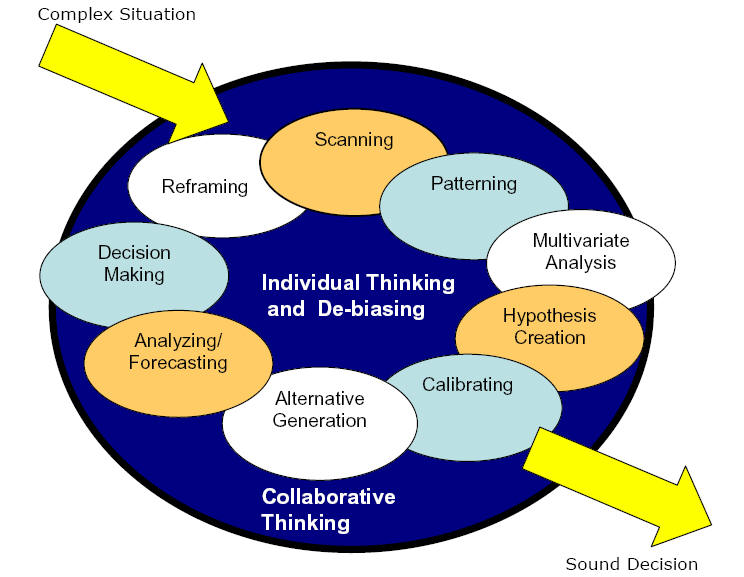 .
.Using stale facts
This last factor is very relevant of late. We have seen a landslide electoral victory in 2004 bearing no resemblance whatsoever to a narrow 2008 victory for BN. We have seen economies that projected 5.5% GDP growth being revised and, revised and, revised to lower projections with each passing month. These are evidence of reliance on stale facts to make key decisions. To be fair, key factors are shifting at frequencies approaching nanoseconds throughout 2008. But, that's how things are in the Electronic Age. No excuses are acceptable.
 .
.
Faulty brain wiring?
Management guru Sydney Finkelstein, a professor at Dartmouth's Tuck School of Business, has another interesting perspective. He believes that bad decisions stem from the way our brains are wired. He delves into the complex world of neuroscience, a hot topic these days. But while much ink has been spilled on neuroscience and how it relates to investment decisions (buy, hold, or sell?), Finkelstein feels that few have applied the emerging science to management decision making.
Given the horror stories coming out from Wall Street, for instance, some pretty horrendous decisions were made by CEOs such as Lehman Brothers' Dick Fuld and Stan O'Neal of Merrill Lynch.
What led these seemingly brilliant men to make such lousy calls? Finkelstein has identified four internal biases that often lead to bad decisions:
- inappropriate prejudgments;
- inappropriate experience;
- self-interest; and
- attachments, sentiment or emotions.
Precipitous Pitfalls
The first two are the most interesting. Prejudgment happens when we choose a course of action and ignore any advice or information that does not follow a predetermined path.
Inappropriate experience, meanwhile, is basically a What worked before will work again attitude that's unfortunately quite common in executive boardrooms and political backrooms.
Finkelstein feels it helps explain why financial firms got more and more enmeshed in subprime loans and collateralized debt obligations in the US. It's not just arrogance—the leaders made these bad decisions because they were right before. But it becomes dangerous when leaders do not heed the warning signs and rely on stale facts. .
.
Lehman Brother's Fuld, Finkelstein argues, perfectly encapsulates the experience bias. Fuld was unable to break out of his own experience and history by seeing the risks that Lehman had.
Another example is Jerry Yang of Yahoo!, who, Finkelstein argues, cost shareholders billions by stubbornly holding out for a better deal from suitor Microsoft , which then walked away from the table. In that situation, the bias Yang displayed was attachment to the company he helped create and last year stepped back in to save. Microsoft's Steve Ballmer was smart to walk away.
There are many Malaysian examples. I won't name names or give any further examples. Malaysians get testy when put in the spotlight. We'll just leave them to wallow under their respective tempurung.
Some advice to note
What advice does Finkelstein have for leaders coping with the economic downturn, commercial and political? Rather than hunker down, he thinks leaders should act boldly.
 .
.
People are more willing to accept change during a crisis. This means it's an opportunity to make hard changes that we need to make that may have been resisted before.
One caveat, though, we need to check biases at the door before we make those hard changes. Can or, not?
1 comment:
73 Million?? wow....some heads will roll i hope
Post a Comment